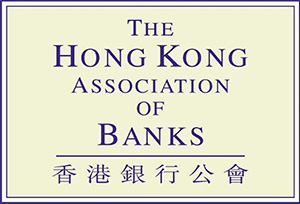HKAB Survey: Digital Bank Adoption and Public Trust Soar
Over 97% of Respondents Satisfied with Security Measures, Awareness of Digital Banks Surges to 80%
▪ Wider application of services, 20% of individual respondents use digital banks for salary accounts
▪ High demand for digital bank accounts, renaming and increased deposit protection limit bolster customer confidence
Hong Kong, 22 October 2024 – More than four years after launching services in Hong Kong, digital banks have steadily gained public trust and recognition. A recent survey by the Hong Kong Association of Banks (HKAB) Digital Banking Education Taskforce (the Taskforce) reveals a significant increase in trust towards digital banks among both individual and small and medium enterprise (SME) respondents. Over 97% of individual and 99% of SME respondents expressed satisfaction with digital banks' security measures. User awareness of digital banks has also grown considerably, with over 80% of individual and 92% of SME respondents believing they have a good understanding of their services, indicating that users are utilising a wider array of services beyond deposits. The Taskforce believes that the digital banking industry’s efforts to enhance the financial technology and service standards of Hong Kong’s digital banks will further strengthen public confidence. Recent initiatives such as the renaming of virtual banks to digital banks and the increase in deposit protection limit to HKD 800,000 for all banks, including digital banks, will further accelerate the adoption of digital banking.
The Taskforce commissioned a comprehensive online survey from 31 July to 8 August 20241, conducted by the School of Communication at Hong Kong Baptist University, to gauge public perception and usage patterns of digital banks. The survey engaged approximately 1,000 individuals and 200 SMEs.
High Overall Trust, Security Measures Widely Recognized
Both individual and SME respondents expressed high levels of satisfaction with the security and anti-fraud measures implemented by digital banks. Nearly 97% of individuals believe that digital banks provide sufficiently effective security measures, with the figure exceeding 99% among SMEs. Both over 90% of individual and SME respondents are satisfied with the security measures in place to protect personal data and prevent fraud.
Spokesperson for the Digital Banking Education Taskforce of The Hong Kong Association of Banks said, “The digital banking industry has been working tirelessly to achieve the government’s three policy objectives: offering a new customer experience, promoting financial inclusion, and promoting fintech and innovation. The survey results show that public confidence in digital banks has significantly increased, thanks to the combined efforts of regulators and the industry. This is a very encouraging finding. Like traditional banks, digital banks are strictly regulated by the Hong Kong Monetary Authority (HKMA), and customers are equally protected by the Deposit Protection Scheme, with coverage increased to HKD 800,000 starting in October. Moreover, digital banks maintain high standards of information security in the financial industry, employing advanced encryption technology and 24/7 real-time monitoring. Going forward, we aim to further improve public perception through public education, enhancing customer experiences, and embracing the shift from virtual banks to digital banks. We believe these measures will strengthen the industry’s foundation for continued growth.”
Digital Banking Demand Surges Among Individuals and SMEs, Attracting a Wider Range of Ages
According to the HKMA, by the end of last year, the number of digital bank account holders continued to rise to 2.2 million2. The survey results indicate that digital banking is expected to significantly expand its reach. About three-quarters of individual respondents indicated their willingness or strong willingness to open new bank accounts at other digital banks, with the proportion exceeding 90% among those who already hold digital bank accounts. Similarly, a significant majority of SMEs expressed willingness or strong willingness to open new bank accounts at other digital banks, with the proportion reaching 99% among SMEs that already have digital bank accounts.
Public awareness of digital banks continues to deepen. 80.3% of individuals and 92.1% of SMEs consider themselves as having a good understanding of digital banks, marking a significant year-on-year increase of 27.3 percentage points and 9.1 percentage points, respectively. The majority of individuals and SMEs have mentioned digital banks for offering cost-effective products and services, as well as attractive promotions.
The survey also shows that digital banks are attracting not only younger generations but also older demographics, indicating their potential to capture a wider customer age range. Among individual respondents, 65.7% of those aged 26-35 hold digital bank accounts, the highest proportion across all age groups, while the proportion among those aged 55 or above is at 44.6%. Among SMEs, 81.3% of respondents aged 36-45 and 66.3% of those aged 55 or above hold digital bank accounts.
Comprehensive Use of Digital Banking Services Leads to a More Solid Customer Base
This year’s survey reveals that at least 20% of individual respondents have utilized 13 services provided by digital banks, a significant increase from the 5 services in the same period last year (YoY). In addition to the widespread use of basic services such as deposits/savings, credit cards, and time deposits, there has been a substantial rise in the number of individual respondents using digital banks to purchase insurance products and investment funds. Furthermore, the proportion of users who have designated digital banks as their payroll accounts has increased to approximately 20% compared to last year, indicating the success of digital banks in deepening customer relationships.
Among SMEs, the usage rates of 11 services have increased significantly, with 14 services being used by over 20% of respondents. The most frequently used services are savings/deposits, time deposits, and payroll accounts. Notably, there has been a substantial increase in the proportion of SMEs using digital banks for invoice financing, business instalment loans, and global remittances, accounting for approximately 30% to 40%. This trend highlights the growing popularity of digital banks among SMEs, becoming their primary tool for managing business operations and conducting daily banking services.
Spokesperson for the Digital Banking Education Taskforce of The Hong Kong Association of Banks said, “The survey demonstrates the evolving financial behaviour patterns of the public and SMEs, with digital banking services becoming further integrated into their daily lives. Additionally, the services provided by digital banking are becoming increasingly diversified, we believe that digital banks will have more opportunities to deepen customer relationships and engage in cross-selling in the future, potentially leading to further enhanced customer loyalty and improved business performance. We share the same view as 80% of individual respondents and 90% of SME respondents in the survey that digital banks will become increasingly popular as public understanding and acceptance continue to grow.”
Digital Banks Drive Web3.0 Development
Digital banks are continuously driving fintech innovation. In terms of Web3.0 development, respondents believe that digital banks can contribute to Hong Kong’s Web3.0 ecosystem by offering more diverse banking services to Web3.0 enterprises and launching Web3.0-related products. A majority of the surveyed Web3.0-related enterprises believe that digital banks’ services help enhance efficiency, reduce costs, and provide convenience in account opening.
- The survey was conducted online from 31 July to 8 August 2024, and interviewed approximately 1,005 individuals and 202 SMEs. Web3.0-related enterprises accounted for 67.3% of the SME respondents.
- Report on the Review of Virtual Banks, The Hong Kong Monetary Authority (6 August 2024).
- End -
Infographics of Survey Data as Attached:
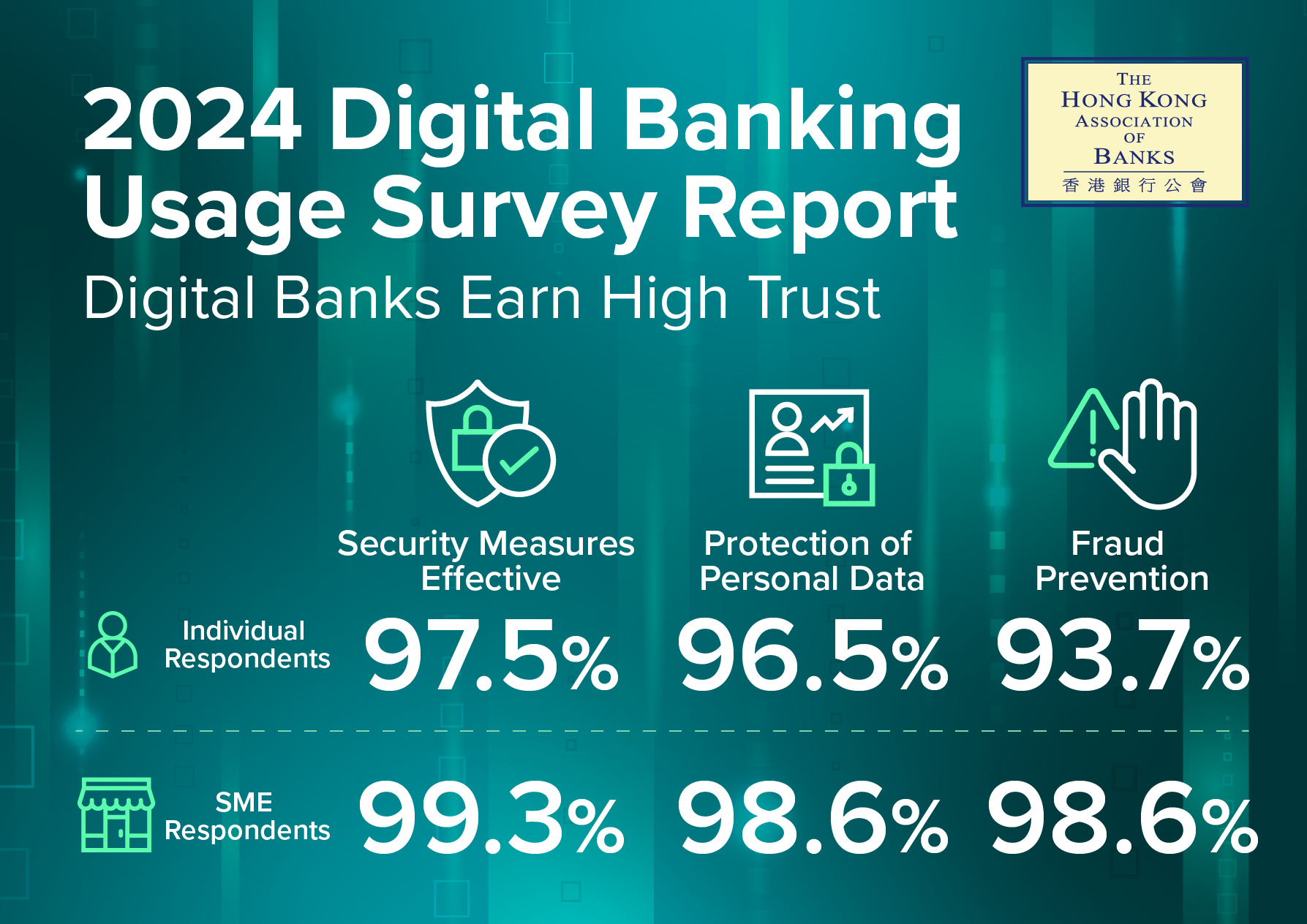
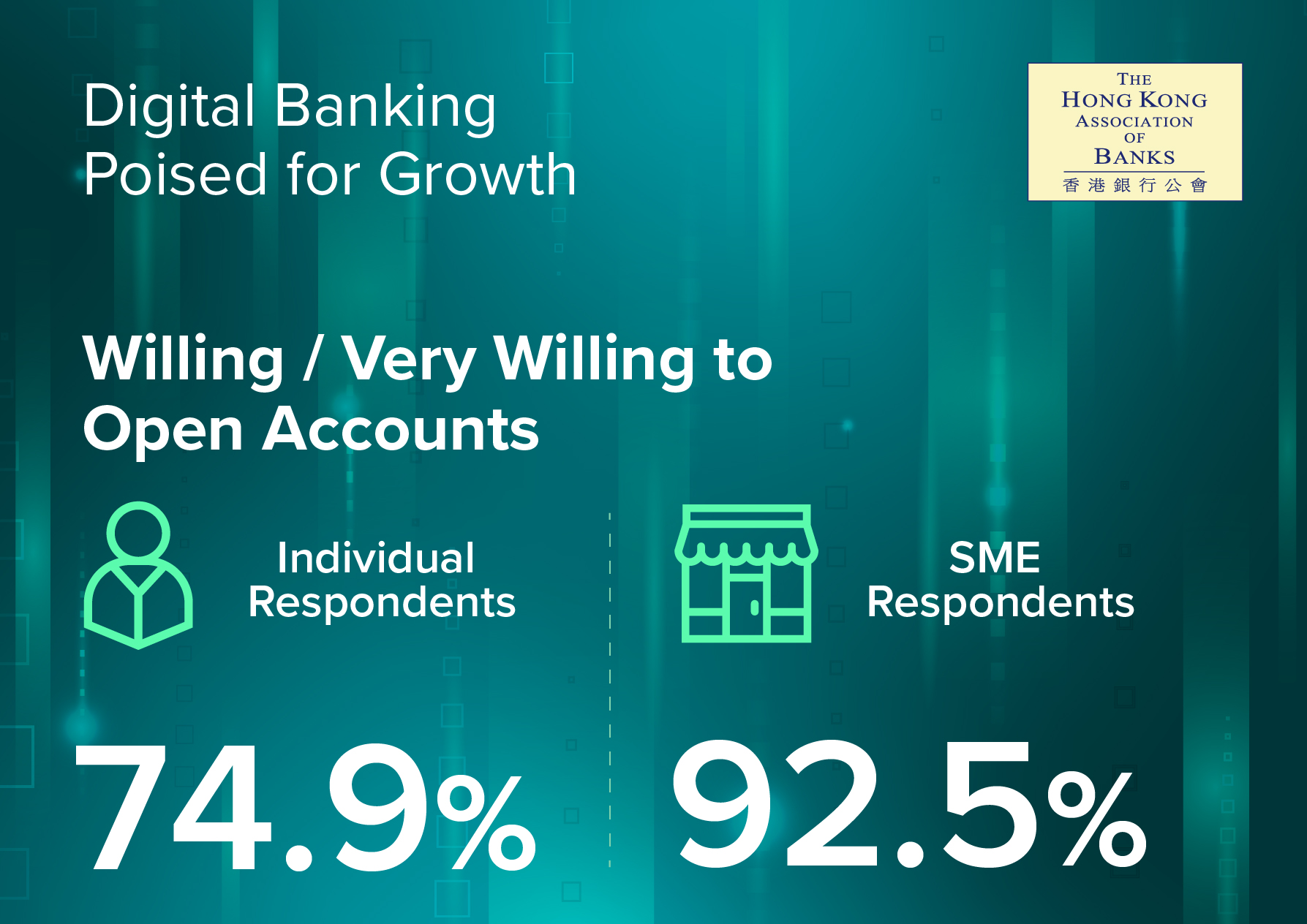
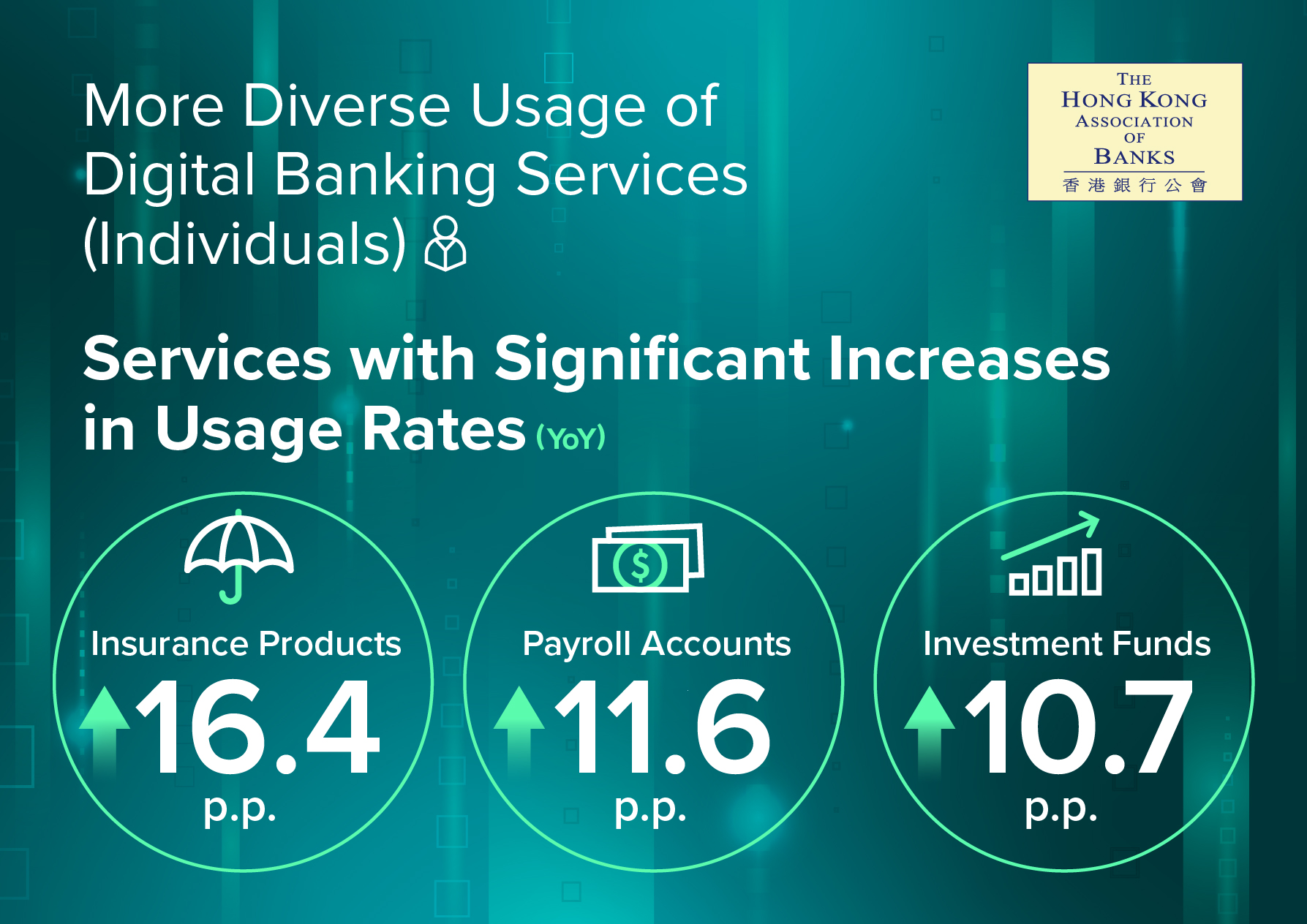
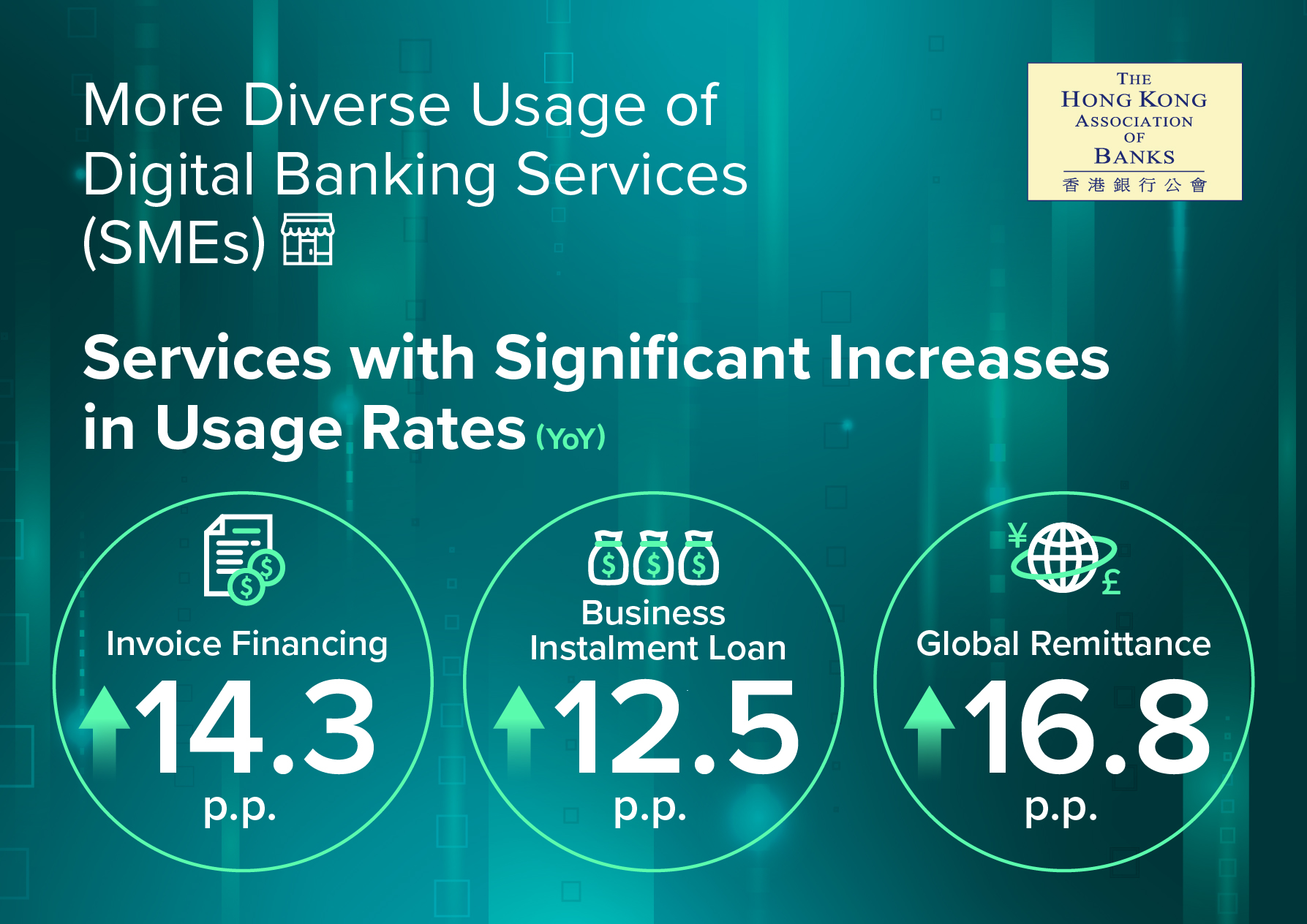
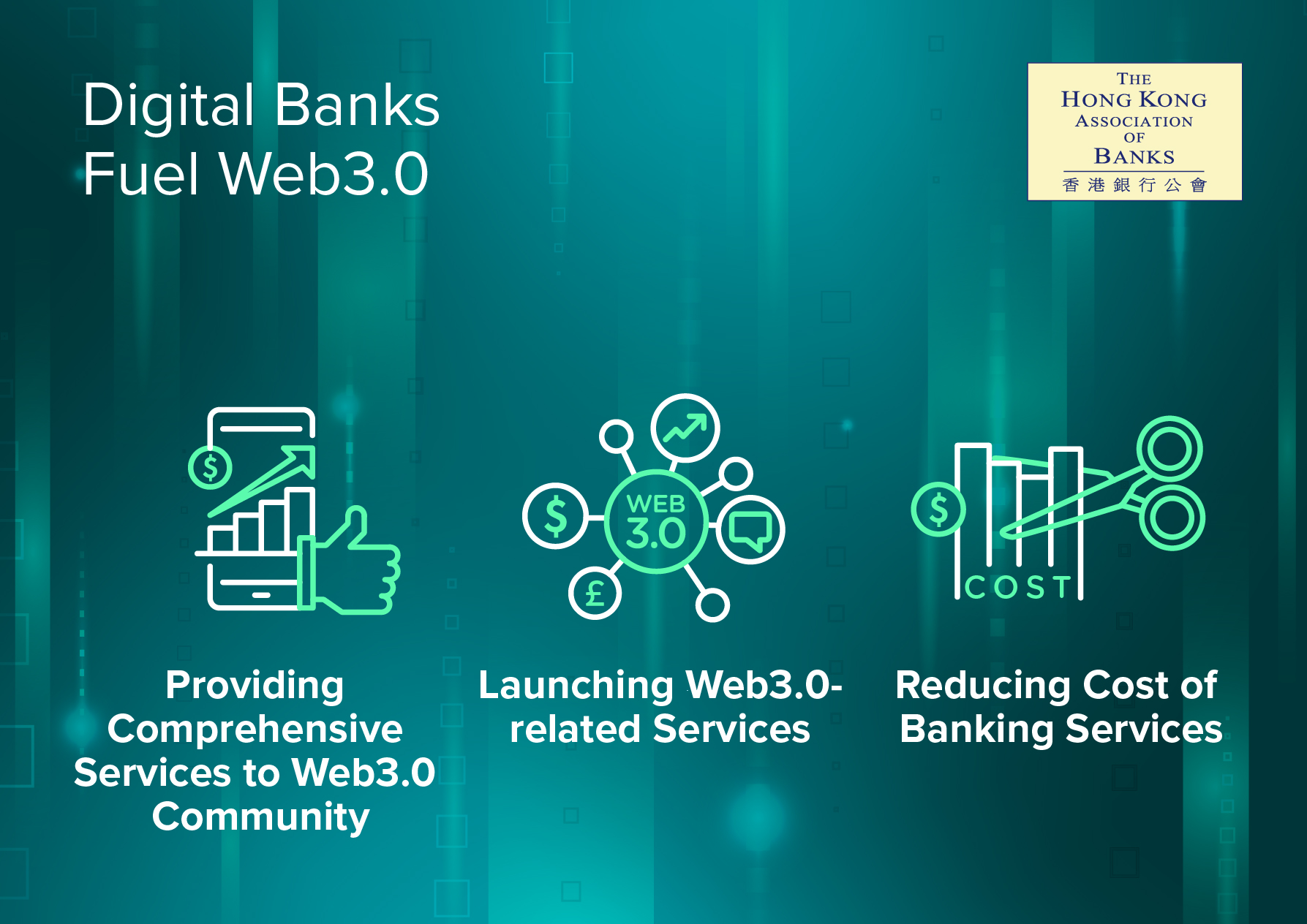

For enquiries, please contact:
Hill+Knowlton
Ms. Fiona Cheung (852) 6218 7072 / fiona.cheung@hillandknowlton.com
Mr. Bernard Chan (852) 6110 5344 / bernard.chan@hillandknowlton.com
